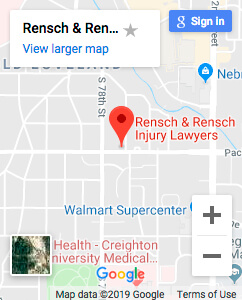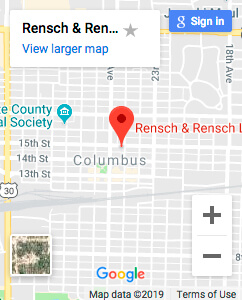Could Psychiatrists or Other Doctors be Sued for a Patient’s Suicide?
OMAHA, Nebraska. According to Scientific American, individuals die of suicide once every 11.7 minutes in the U.S. With so many people dying from suicides each year, you’d think that mental health professionals and medical professionals would be properly trained to identify suicide risk in patients. Yet, according to the American Association of Suicidology, few doctors are receiving this crucial training. In fact, only 50% of psychologists receive training in how to identify potentially suicidal patients. Social workers only receive this crucial training in a quarter of cases, and only 6 percent of people in marriage and family therapy programs receive training.
Proper training could potentially save lives. Crisis interventions, for example, have been shown to reduce suicide in soldiers by 76 percent. Lack of information about the needs of suicidal patients leads to bias and assumptions. Many suicidal patients attempt suicide during a crisis. If medical professionals and support workers can help the patient get through the crisis, the patient is more likely to live.
Therapists, psychologists, and social workers are the professionals who often come in contact with patients who may be suicidal. In the aftermath of a loved one’s suicide or suicide attempt, families may turn to the patient to answer their questions, but they may not always consider the fact that the patient’s therapist, psychologist, or social worker may have answers. Patient privacy laws may make it hard for families to get access to the information that the doctor may have, leaving many families in the dark.
The Psychiatric Times recently published an article for therapists and psychologists, offering strategies to help doctors avoid professional malpractice lawsuits. The article discusses the importance of thorough documentation of suicide risk-factors. When patients are brought into the hospital for assessments, the biggest risk is that they will be released prematurely, before the crisis has been addressed or treated. Training for doctors to better identify risk factors could potentially reduce the risk that patients will be released prematurely, when they still could be a risk to themselves or others.
However, it can be very difficult for families to pursue a successful lawsuit against a doctor or therapist if a loved one attempts or commits suicide. The law recognizes that suicide can be difficult to predict, even among doctors who have received training. There are still ways that families can seek answers. For example, if doctors failed to document any signs of improvement when a patient was hospitalized, and then the patient was released, doctors could potentially be found negligent. Essentially, families may be able to seek justice if a doctor made a decision to release a patient when other therapists or psychiatrists would have kept the patient in the hospital.
Another issue is that primary care physicians may also not be trained to see the warning signs. Many patients might not seek the help of therapists or psychiatrists, but will visit their family doctor.
Finally, according to the Psychiatric Times, one of the most common errors that doctors make is relying on patient’s self-reports rather than relying on their actions and behavior.
Rensch & Rensch Law are personal injury lawyers in Omaha, Nebraska who work closely with families and victims who have been hurt due to the negligence or neglect of another person or party. If you have a question about a professional’s responsibility when it comes to the treatment or care of a loved one, visit us at www.renschandrensch.com to learn more.
Rensch & Rensch Law
7602 Pacific Street,
Suite 102
Omaha, NE 68114
Toll Free: 800-471-4100





